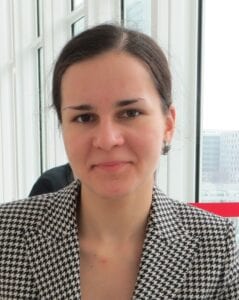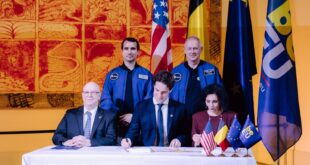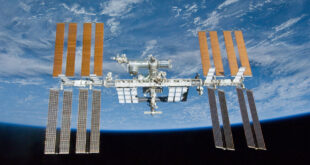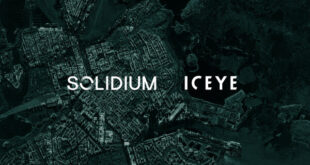
Elina Morozova in conversation with Dr Olga Volynskaya, an independent Russian space law and policy expert with a very unique background, holder of industry awards and commendations, corresponding member of the Russian Tsiolkovsky Academy of Cosmonautics, an individual member of the International Institute of Space Law.
Olga Volynskaya has spent the last 15 years working in the field of international and Russian space law and the development of space policy and legislation. Having gained practical experience and industry knowledge in Roscosmos and its subordinate organizations, she subsequently moved to the Legal Department of the Ministry of Foreign Affairs of the Russian Federation. Olga’s track record includes a few successfully prepared sessions of the COPUOS Legal Subcommittee, at which she participated as part of the Russian delegation and coordinated the most topical issues on the agenda. Since the end of 2020, Olga has been engaged in academic research and international projects on a freelance expert basis.
The Ministry of Foreign Affairs of the Russian Federation is the body responsible for the state’s official position on key issues of space policy. What is it like to work in such an institution and how does it differ from your experience in Roscosmos?
It is very exciting to feel that your work brings to life international space law, which is usually associated exclusively with a doctrinal nature. At the same time, the Russian Foreign Ministry does pay attention to the teachings of qualified specialists of different nations. My work for both Roscosmos and the MFA was very interesting and, to a certain extent, challenging experience broadening the understanding of how things work in practice. For instance, a surprising finding was the important role of private international law in the planning and governance of space activities. It feels like the degree of responsibility is considerably higher in the Ministry, since the diplomats represent a position of the whole country, not a single entity. The Russian delegation always expresses a substantial position on every item of the agenda of the COPUOS Legal Subcommittee and is greatly respected by the counterparts.
Olga, you have a unique experience in translating the Cologne Commentary on Space Law into the Russian language. What challenges accompanied this work? What unexpected and interesting findings did you encounter?
The goal of this major endeavour was to introduce to a wide Russian audience the most pertinent and accurate information contained in CoCoSL. Hence, it required not only technical translation work but also updating of some statistics and materials. These include the existing national space legislation and the practice of registering space objects. Even for a native speaker, the Russian language appeared more difficult than it seemed to be. There were several peculiar aspects concerning the translation of legal terms and their interpretation into Russian. For instance, the terms ‘liability’ and ‘responsibility’ have one and the same Russian equivalent. In-depth research was also required to assess the correctness of the Russian analogies of such terms as ‘non-governmental entity’ and ‘procure the launching.’
The regulation of the exploration, exploitation, and utilization of space resources is one of the hottest topics on domestic and international fora. Is there a consensus solution on the space resources governance in the future?
The issue of space resources was discussed under the auspices of COPUOS decades ago, including by Soviet diplomats, but back then it was purely theoretical. As soon as the respective US law appeared in 2015, the issue became particularly relevant. Russia was one of the first to criticize such national lawmaking initiatives since any regulation of space resources – the sphere of ‘jurisdiction’ and the wealth of all humankind – must have an international legal basis. In any case, Russia is willing to and will participate in the exploration and exploitation of space resources in full compliance with the norms of international law. Just like national natural resources, space resources are one of the key elements of the prestige of sovereign states.
This Space Cafè Russia, held on 5 March 2021, was hosted by Elina Morozova, Executive Director of the Intersputnik International Organization of Space Communications and friend of SpaceWatch.Global.
SpaceWatch.Global is a Switzerland-based digital magazine and portal for those interested in space and the far-reaching impact of the space sector.
Space Cafe Russia is broadcast live on the first Friday of the first month of each season. Join us at 5 pm MSK.
To listen to Dr Olga Volynskaya’s insights into the painstaking work on putting space law from theoretical paradigm into practice, you can watch the full programme in the Russian language here:
 SpaceWatch.Global An independent perspective on space
SpaceWatch.Global An independent perspective on space




